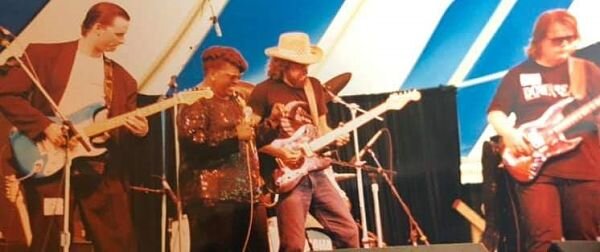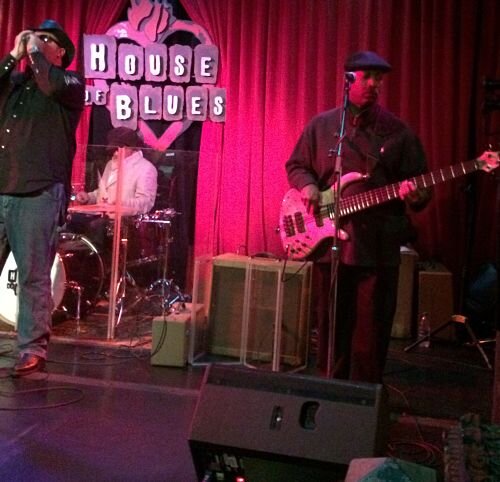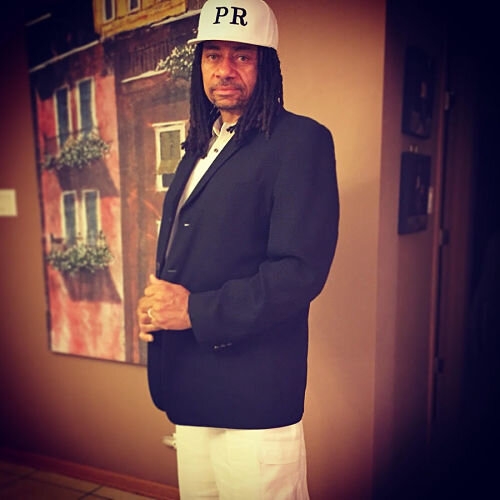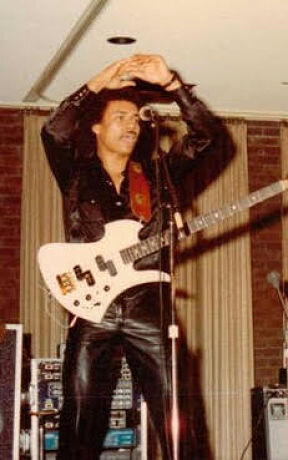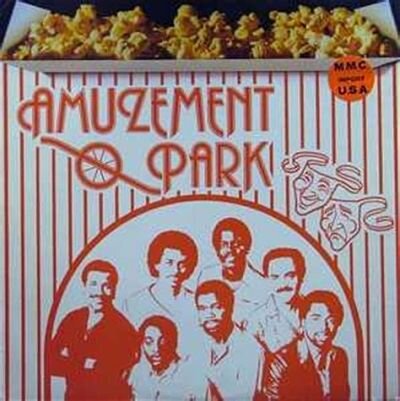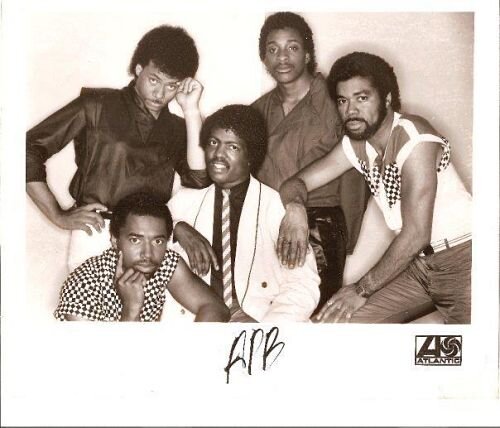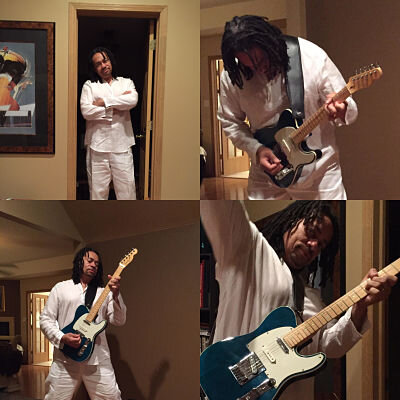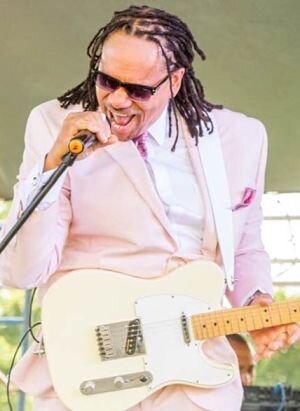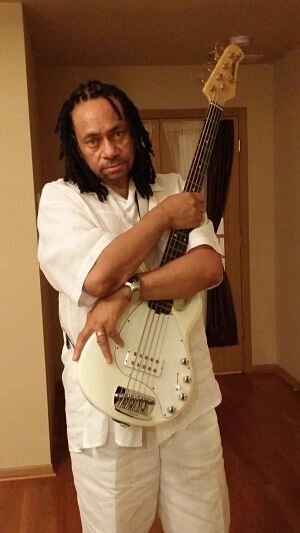John Pazdan (Pezband)


John Pazdan, bassist by Joe Gagliardo
Seminal Sides: Pezband United Technique (1972) and Women and Politics (2016)
Artists / Bands: Pezband, Milton and Winston, Off Broadway
John Pazdan has pursued an eclectic array of musical styles during his five-decade career as a bassist – from rhythm and blues, to pop rock, soul, rockabilly and jazz. Though the Chicago area-based musician generally prefers performing an improvisational set at a New York City club or composing electronic tones from his studio in Aurora, Illinois – he also gigs in the Midwest with well-known power-pop bands.
Pazdan broke into the Chicago music scene in 1971, with an electric Wurlitzer piano and a Fender guitar, as one of the founding members of the power-pop legends Pezband. John played with the group until 1973, and occasionally through its several metamorphoses thereafter, switching over to the bass guitar.
From that two-year stint with Pezband, Pazdan appeared on United Technique (1972), which was released forty-one years later, and was followed by the release of a 1982 recording, Women and Politics in 2016. These records afforded Pazdan the opportunity to tour Japan and the East Coast with Dwight Twilley and Shoes.


However, it was the soul music of the 1970s, as well as the rhythmic delights of roots reggae, funk fusion and African music that turned Pazdan to the bass! Post Pezband, Pazdan joined up with the Southside Chicago soul band Milton and Winston, a well-known duo on WVON, which was Chicago’s premier soul, r&b and blues radio station, which released several of their 45s.
This was the experience that made John a bona-fide bass player, Pazdan says – keeping time, playing the pocket, pushing the groove – and opening his own bass playing to influences that shape his improvisational focus.


Pazdan lists bass players such as James Jamerson and Leroy Hodges, funk fusion pioneers Michael Henderson and Paul Jackson, reggae bassists Robbie Shakespeare and Aston “Family Man” Barrett (Bob Marley & The Wailers) among the influencers of his style.
Pazdan rolled with the 70s – playing funk and fusion instrumentals, as well as circling back to the power pop scene. A stint with the TS Henry Webb Band (after Webb moved on from The Flock), morphed into Off Broadway, which featured former Pezband lead singer Cliff Johnson. The band’s debut album On was released by Atlantic in 1980 and included the hit single “Stay in Time.”


By the mid-1980s, Pazdan had been to Los Angeles and back to Chicago playing blues at the storied Kingston Mines with Joe Kelley (Shadows of Knight), and blues greats including Sugar Blue and Hubert Sumlin. These sets, which ran every weekend for a year, often lasted until 4:00 AM!
Also during the 1980s, a new form of rocked-up traditional country music, now known as “Alternative Country” drew Pazdan’s interest. He teamed up with former Off Broadway bandmate and guitarist John Ivan to form Big Guitars from Memphis. The band, which became popular in Scandinavia, toured with The Jordanaires, top session player Charlie McCoy, and Beatles’ mentor Tony Sheridan – a rockabilly guitarist.


Through all these musical transformations, John mostly finds his groove in improvisation, such as a 2016 gathering of bass players at the Manhattan Inn in Brooklyn, New York. That evening, Pazdan, set for the final solo of the evening among fourteen bassists, decided to invite Brooklyn-based baritone sax player Maria Eisen to join him along with upright bass players Scott Ritchie (Lady Gaga) and Louis Levitt (Sybarite 5) at the show for a free-form set. For Pazdan and his impromptu crew, that was exhilarating music!
Since the 1980s, Pazdan has produced and released compositions of bass and electronic instrumentals.
You can catch Pazdan live with Off Broadway, and check out his playing at the links below.
Also, watch for John’s electronic “free noise” ensembles St Fu and The Empty Set, as well as a new free floating “skronk-noise thing” under the monkier Scorched Space Policy.
John Pazdan Sound and Vision:
Off Broadway-“Stay In Time” https://youtu.be/zJOTXWoeIew
Off Broadway-“She Said, She Said” Live https://youtu.be/h43wgg9erWc
Pezband-“Fab Girlfriends” https://youtu.be/hyHUIKENm0A
John Pazdan-“Murder” https://soundcloud.com/johnp352/murder
Notes John: It was written as a protest against the murder of black and brown people in the Middle East. My “Machine Gun”…I like the false endings…
Weapons of Choice: Pazdan has used a diverse array of gear over the years, including a 1959 Danelectro Longhorn, a Mocha Brown Fender Precision bass, Fender Bass VI, MusicMan StingRay, a Piccolo bass, and an Ibanez Mikro bass, as well as Washburn, Jerry Jones and Alembic basses. His go-to basses these days for jazz and improv are a custom Rick Turner Renaissance five string fretless, tuned from E to high C and a heavily modified Mikro bass using a variety of tunings.
With Off Broadway, he prefers a MusicMan Sub from the early 2000s. While he had monster rigs in the past, with MusicMan and Hi-Watt heads, and multiple 4×12 and 4×10 cabinets, his go-to rig these days is a GK1001 and a TC cabinet with 2x12s. He recommends tipping the monitor mixer a $20 bill to hear bass through the sidefills! For pedals / effects, he uses the Malekko Charley Foxtrot, and two extremely bent Roctek pedals from Circuit Benders UK. He also plays a Mbira Huru which is a large kalimba style instrument from Zimbabwe, and various synthesizers.











